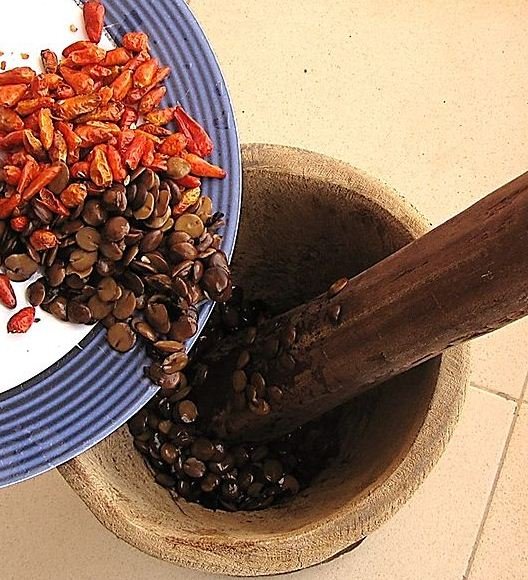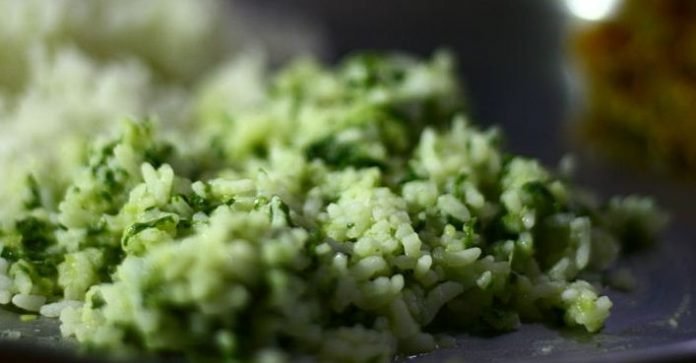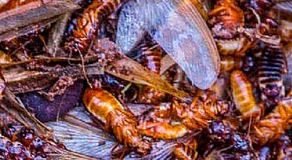Fermented African Soup | Home is Burkina Faso
Babenda is a traditional Burkinabe delicacy that is prepared using fermented locust beans (Dawa Dawa, Tamarind), fish, and any bitter greens (spinach, mustard greens, kale, or Swiss chard). Rice is also combined with the homogeneous mass to make this hearty dish a nutritional powerhouse. When it’s well prepared, the delicacy will give you a pungent flavor, but make no mistake, it’s unique taste is cool, and it’s loaded with nutrients to keep your body immunity at par. Babenda recipe is that very dish you can’t afford to miss during flu seasons, and especially during this covid-19 pandemic.
Let’s clarify: Babenda is not a cure for Coronavirus, however, it can keep your body well-nourished, and can minimize any chances of developing life-threatening complications. Some people have linked Babenda soup to the strength and agility of Burkinabe men. Is this soup the secret behind Burkinabe’s fertility.
Fact: Burkina Faso is the 6th countries with the highest fertility rate in the world.
[bctt tweet=”Burkina Faso is the 6th highly fertile countries globally”]
Why Babenda recipe?
Babenda recipe never disappoints and is, for sure, a nutritional powerhouse.

The African locust beans are known for their health benefits. Adding them to your diet will help control your cholesterol levels, regulate blood sugar, diagnose diarrhea, treat hypertension, ease digestion, reduce fever, facilitate faster wound healing, and weight management. Organic powerhouse food, locust beans are sold at junction markets in many sub-Saharan African cities. In the US, check them out at most African markets and stores.
The Babenda delicacy contains fish rich in Omega 3, which helps reduce heart complications, stroke, fights depression, improves eye health, fights anxiety, and minimizes ADHD symptoms in children.
Bitter greens, on the other hand, are loaded with Vitamin C, K, and A, and minerals like Magnesium, Calcium, and Potassium.
Burkina Faso Culture
Burkina Faso translates to a country of upright people. By nature, Burkinabes are generous. Their cuisine almost resembles, and has great influence from West Africa. However, the country boasts of her own cultural diversity manifested in its cuisine, art, music, and cultural practices. This is because the nation is home to over 60 different ethnic groups.
You can quickly locate Burkina Faso on the map, not only because of its rich mineral resources, but also because of its well known hero, President Thomas Sankara, a Pan- Africanist who changed this country’s old name from Upper Volta as named by its European colonialists to what it’s now called. Sankara was assassinated in a coup by his right hand man, Blaise Compaore, citing that Sankara was “deteriorating Burkina Faso’s relationship with France.” As of 2012, Burkina Faso is the 4th largest producer of gold.
Due to the Arabization movement of Africa, 50% of Burkina Faso population are Muslims, 40% are animist believers, while 10% are Roman Catholics.
Just like most African countries, women are expected to dress modestly. Wearing short dresses, skirts, and shorts are unacceptable and deemed offensive. Ladies have the responsibility of preparing meals for the family, take care of the kids, fetch water, washing clothes, do dishes, and work in the farm with planting and harvesting.
Gender inequality is more prominent in rural areas. The boy child is given more priority when it comes to education than the girls. Women cannot get “high” on anything in Burkina Faso especially in rural areas, as coffee, smoking, and alcohol are specifically prohibited for women.
Dining Culture
Burkinabe food has much influence from West Africa. Most dishes contain the main staple food grown locally, including yam, millet, maize, cowpeas, sorghum, and cassavas.
Meat is rarely included in daily meals. However, during ceremonies and traditional rituals, meat is always part of the menu.
Enjoying food, and giving presents are done with the right hand. Slaughtering livestock, chicken, or a guinea fowl is a traditional religious practice.
Now that you have an idea of what Burkinabe cuisine, let us get down to our recipe.
Ingredients
1 cup of locust beans (Dawa Dawa)
½ cup peanuts
A bunch of spinach (chopped)
4 dried sandiness
1 bunch coriander (chopped)
1 cup of rice
2 cups of water
Cooking oil
-Guide-
- Put your dried sardines, peanuts and locust beans in a food processer and blend them into a thick puree
- Add your rice and process it for about 15 minutes. Do not panic when the rice is broken into smaller pieces
- Add your spinach, two tablespoons of oil, and other ingredients in a large pot and bring it to boil
- Cook for 15 minutes and stir. If the water has not fully evaporated, leave it to cook uncovered until you get a sticky mass of spinach and rice
- Turn off the heat and add your coriander. Simmer for two minutes and serve while hot
If you love this Babenda recipe, you may also like





